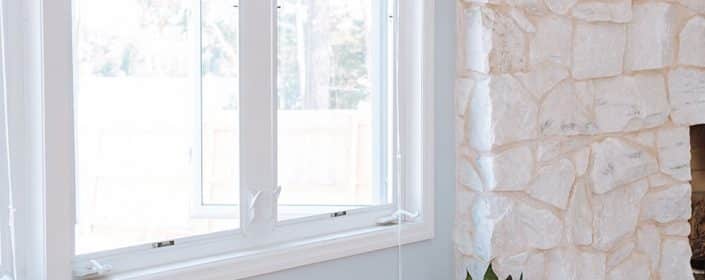How Energy-Efficient Windows Can Regulate the Temperature in Your Home during the Summer
Summer in Ottawa is here, which means the days of heat and humidity are upon us.
If your home is unbearably hot during the summer months, your windows are probably to blame.
When old windows allow heat in during Ottawa’s heat waves, you either have to crank up the AC or suffer through the heat.
The good news is you don’t have to suffer in the heat, nor do you have to worry about high energy bills from cranking every fan and AC unit in your home. You can reduce the amount of heat that enters your home by replacing your old windows with energy-efficient windows.
You can also benefit from incentives for homeowners who make their homes more energy efficient by replacing your old windows.
The upgrade will be worth it for your comfort, energy costs, and sanity this summer. What’s more, you will also benefit from these windows in the frigid winters too.
Let’s take a closer look:
How Old Windows Contribute to A Warmer Home
Old windows frequently feature poor seals and insulation, allowing plenty of heat into homes during the summer.
Typically, older windows only use a single pane of glass, which allows heat to transfer quickly due to the lack of insulating qualities.
Old windows also have poor seals that allow air to leak through. Air leaks let the hot outdoor air in, and the conditioned indoor air out. The same happens in the winter, but with cold outdoor air leaking in and hot indoor air leaking out.
Top Replacement Window Features To Keep The Heat Away
When shopping for new windows that will keep your indoor air temperature comfortable this summer, look for Energy Star-rated windows from your local window manufacturers. An Energy Star rating is like a seal of approval for energy-efficient windows.
Energy Star Windows
The Energy Rating compares the window’s amount of heat loss with heat gain. So the higher the number, the more energy-efficient the window.
The U-factor is a measure of the rate of heat transfer in a window. The lower the U-factor value, the lower the rate of heat transfer, which is ideal for keeping hot air out in summer, and keeping warm air in during winter.
Low-E Windows
Low-E windows don’t allow heat to transfer through from sunlight and hot air. Low-emissivity glass features a coating of microscopic reflective materials that reflect heat, especially infrared light (heat energy) from the sun. This coating also works well to keep heat in the home during the winter months.
Window Glazes
The glaze of a window refers to how many glass panes the window has.
New energy-efficient windows are well-insulated since they have up to three panes of glass.
Double-glazed windows have two panes of glass with a space between to prevent heat transfer.
Triple-glazed windows in Ottawa have a third pane of glass between the outer panes. The extra layers prevent even more heat transfer. There is also inert gas between each pane for added insulation.
Quality Seals
Energy-efficient windows will have quality seals to prevent air leaks, keeping the hot air out and the cool air in.
Tips to Help Beat The Heat
Besides replacing old windows with new energy-efficient windows, you can take extra steps to keep the heat out and your home cool this summer.
Close Curtains, Shades, and Blinds
The key to keeping your home cool during hot summer days is to keep the sunlight out. Close all blinds, curtains, and drapes during the day to keep your indoor air temperature and your cooling costs down.
Medium-coloured curtains and shades with white-plastic backings reflect the most sunlight and keep the light out. Reflective blinds can also reduce solar heat gain.
A combination of window treatments will provide extra layers to keep the sun and heat out during the day.
Install Blackout Curtains
To prevent heat from getting in, install blackout curtains and close them during the day. These will completely block out the sunlight. And since the sunlight can’t enter your home, you won’t have the added heat entering your home either.
If you’re at home during the day, and you want to let in some natural light, only close the blackout curtains on the windows facing the sun.
Install Awnings
Awnings block sunlight from reaching your windows. And light-coloured awnings are especially useful for reflecting sunlight. These are optimal for reducing solar heat gain for windows facing the sun.
Open Your Windows When the Outdoor Air is Cool
Opening your windows during a hot day will only let in the hot air, so wait until the sun is down and the air is cool outside to open your windows.
Properly Install Your AC
If you use a window AC, make sure to properly install and care for your AC. This will keep it safe and working well while preventing hot air from entering through its window.
Circulate Cool Air with Fans
Whether you’re letting the cool air in at night, or you’re running the AC, make sure to circulate the air around your home with fans. This will better regulate your indoor air temperature, keeping your entire home comfortable.
Keep these tips in mind to ensure your home stays cool and comfortable and your AC isn’t working in overdrive this summer. And consider a window replacement with energy-efficient windows that will keep your home comfortable year-round.


